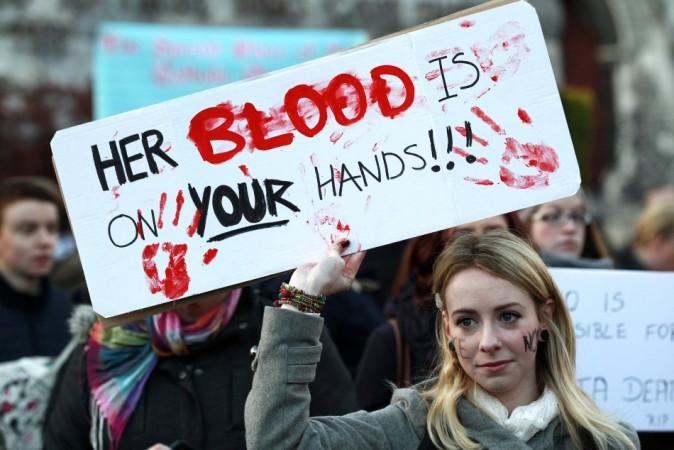
The catholic country of Ireland has finally passed the controversial abortion law amidst sharp resistance. The law allows the process in limited cases where a life is in danger.
The controversial law was passed in the Lower House of Parliament and won the vote by 127 to 31.
Ireland Prime Minister Enda Kenny and his coalition Government had put forward the Protection of Life in Pregnancy Bill under which an abortion is acceptable when a woman's life is at risk.
The proposal for the abortion bill came in the wake of 31-year-old Indian dentist Savita Halappanavar's death in an Irish hospital last year after being denied an abortion.
Doctors refused to terminate Savita's pregnancy despite her deteriorating condition since the child was said to have a beating heart at that point. Ultimately, Savita died due to septicemia or blood poisoning.
Savita's husband Praveen Halappanavar had questioned the insensitive law that was practically murderous and started a campaign for justice of his deceased wife.
For the Catholic following Ireland, the move to legalise abortion came under severe criticism and was open to debates.
Various human rights activists voiced for the immediate need of the change in law as it was revealed that every year 4,000 women travelled to the UK to get an abortion.
After the bill passed in the Lower House with majority, Prime Minister Kenny lauded the landmark vote saying, "We had 21 years of inaction, 21 years of inaction."
"What's going on here is medical clarity and legal certainty for the women of our country who have had a constitutional right conferred upon them," she said.
Kenny had been threatened with excommunication ever since proposing the controversial bill in the Irish parliament.
The abortion bill will now be presented in the Upper House or Senade where it will be passed and then sent to the President, who will sign it as an Irish law.













